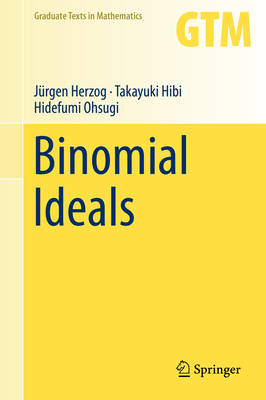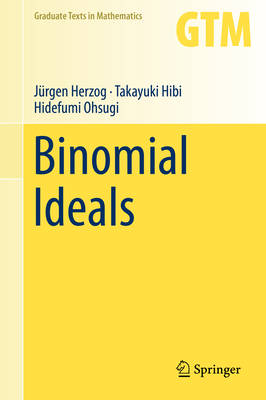
- Afhalen na 1 uur in een winkel met voorraad
- Gratis thuislevering in België vanaf € 30
- Ruim aanbod met 7 miljoen producten
- Afhalen na 1 uur in een winkel met voorraad
- Gratis thuislevering in België vanaf € 30
- Ruim aanbod met 7 miljoen producten
Zoeken
Omschrijving
This textbook provides an introduction to the combinatorial and statistical aspects of commutative algebra with an emphasis on binomial ideals. In addition to thorough coverage of the basic concepts and theory, it explores current trends, results, and applications of binomial ideals to other areas of mathematics.
The book begins with a brief, self-contained overview of the modern theory of Gröbner bases and the necessary algebraic and homological concepts from commutative algebra. Binomials and binomial ideals are then considered in detail, along with a short introduction to convex polytopes. Chapters in the remainder of the text can be read independently and explore specific aspects of the theory of binomial ideals, including edge rings and edge polytopes, join-meet ideals of finite lattices, binomial edge ideals, ideals generated by 2-minors, and binomial ideals arising from statistics. Each chapter concludes with a set of exercises and a list of related topics and results that will complement and offer a better understanding of the material presented.
Binomial Ideals is suitable for graduate students in courses on commutative algebra, algebraic combinatorics, and statistics. Additionally, researchers interested in any of these areas but familiar with only the basic facts of commutative algebra will find it to be a valuable resource.
The book begins with a brief, self-contained overview of the modern theory of Gröbner bases and the necessary algebraic and homological concepts from commutative algebra. Binomials and binomial ideals are then considered in detail, along with a short introduction to convex polytopes. Chapters in the remainder of the text can be read independently and explore specific aspects of the theory of binomial ideals, including edge rings and edge polytopes, join-meet ideals of finite lattices, binomial edge ideals, ideals generated by 2-minors, and binomial ideals arising from statistics. Each chapter concludes with a set of exercises and a list of related topics and results that will complement and offer a better understanding of the material presented.
Binomial Ideals is suitable for graduate students in courses on commutative algebra, algebraic combinatorics, and statistics. Additionally, researchers interested in any of these areas but familiar with only the basic facts of commutative algebra will find it to be a valuable resource.
Specificaties
Betrokkenen
- Auteur(s):
- Uitgeverij:
Inhoud
- Aantal bladzijden:
- 321
- Taal:
- Engels
- Reeks:
- Reeksnummer:
- nr. 279
Eigenschappen
- Productcode (EAN):
- 9783319953472
- Verschijningsdatum:
- 10/10/2018
- Uitvoering:
- Hardcover
- Formaat:
- Genaaid
- Afmetingen:
- 239 mm x 163 mm
- Gewicht:
- 635 g

Alleen bij Standaard Boekhandel
+ 158 punten op je klantenkaart van Standaard Boekhandel
Beoordelingen
We publiceren alleen reviews die voldoen aan de voorwaarden voor reviews. Bekijk onze voorwaarden voor reviews.











